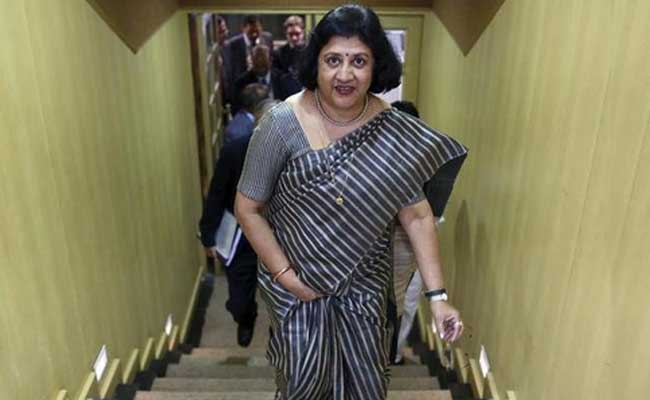“We are already growing at very close to 12 per cent. This is the slow quarter. So that being the case, we may revise the credit growth projections sometime in the middle of the year,” Ms Bhattacharya told reporters on the sidelines of the annual Fibac here.
“…if the revision comes, it should be upward,” she specified, when asked about the direction of the review.
In the June quarter, SBI’s advances rose 11.41 per cent to Rs 14,63,690 crore from Rs 13,13,735 crore. The bank had set a loan growth target of 12 per cent for this fiscal primarily led by retail loans which jumped 23 per cent.
It can be noted that banks closed the past fiscal year with credit growth at around 9 per cent which was a near six-decade low as cash-strapped and over-leveraged corporates moved away from bank funds in general and moving to money markets for even working capital loans.
Stating that the review will depend largely on demand for high value project loans, Ms Bhattacharya said, “In the slow season, the fact that we have been able to grow at 12 per cent that gives us hope that we’ll be able to keep this up.”
Unlike the last time when a few things got overlooked resulting in the high non-performing assets, the bank will keep certain aspects in mind while participating in project finance, she said.
“Last time there were a lot of risks that were not covered, we have pointed those out for mitigation. We also want the people to get more equity,” she said, adding the bank will also keep an eye on the way bidding for a project happens.
Last week, SBI had said its June quarter net profit fell only 32 per cent to Rs 2,521 crore as its credit quality improved and could arrest large slippages.
“The worst is behind us when it comes to stressed assets. But let me warn you that the recovery will be slow and staggered as all those accounts marked in the watch list display stress. But I don’t think we will be revising upwards the watch list of Rs 31,000 crore going forward,” Ms Bhattacharya told reporters last Friday announcing the first quarter earnings.
Ms Bhattacharya further said, “We are still looking at resolution picking up pace. Resolution has started but they have not picked up pace to that extent and specially in respect of the larger accounts, we really need to see much more movement. But that will happen over a period of time.”
Hours before her, RBI Governor Raghuram Rajan had hoped bankers will not be exuberant in addressing infra financing challenges, stress on promoters getting more equity and have flexibility in the loans.
Ms Bhattacharya said the bank expects a continuous improvement in its stressed assets and maintained the guidance of restricting slippages to Rs 40,000 crore and Rs 31,000 crore in watch-list accounts.
“We are making efforts at recovering most of the large accounts, it doesn’t matter the sector. Once you have classified, we need resolution very quickly. We’ll have a space of 12-18 months. We’re hopeful that we’ll be able to manage it in most of the accounts where the asset is good,” she elaborated.
With Dr Rajan speaking about a review in the S4A scheme — Scheme for Sustainable Structuring of Stressed Assets, Ms Bhattacharya said the bank has had a dialogue with the RBI on the potential impediments for a smoother working of the scheme.
Specifically, SBI wants the level of sustainable debt to be taken below the 50 per cent, need to go beyond the current cash-flows system and also have a relook on interest rates, which are higher when the accounts become NPA.
“The central bank is open to the question of rates, not so open on cash flows though,” she said.
The SBI chief also said she does not know what the RBI is looking at when it comes to reviewing of the marginal cost of funds based lending rate (MCLR) for fastening transmission of policy rates.

